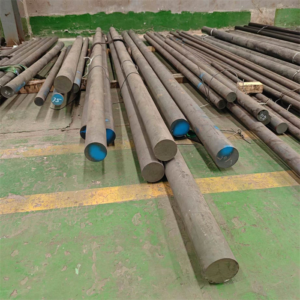Get in touch with us
Leave a message
Hastelloy Rods are renowned nickel-based alloys engineered to excel in extreme environments, offering unmatched resistance to corrosion, heat, and mechanical stress. As a premier factory and supplier based in China, we produce Hastelloy Rods and Bars that integrate nickel, molybdenum, and chromium for exceptional durability. These superalloys are the go-to choice for industries facing harsh conditions where conventional metals fall short. From chemical reactors to aerospace components, our Hastelloy Rods deliver reliable performance tailored to your needs.

Hastelloy Rods meet rigorous industry standards and are available in a variety of grades:
These specifications ensure each Hastelloy Rod provides consistent quality and performance, making them ideal for critical applications across multiple sectors.
Hastelloy Rods are offered in a wide range of dimensions, with customization to meet specific requirements:
This versatility ensures our Hastelloy Bars suit everything from small fittings to large structural components.
Hastelloy Rods come in diverse forms, crafted with advanced techniques and finished for optimal use:
For example, a Hastelloy C276 Round Bar might be polished for reduced friction, while a Hastelloy X Rod is forged for superior strength in high-heat environments.
| Grade | Key Features | Industry | Specific Uses |
|---|---|---|---|
| C276 | Corrosion resistance, versatility | Chemical, Oil & Gas | Pump shafts, valve stems, reactors |
| C22 | Weldability, oxidation resistance | Pharmaceutical, Marine | Heat exchangers, piping systems |
| B2 | Resistance to reducing acids | Chemical Processing | Acid production equipment, fittings |
| X | High-temperature strength | Aerospace, Gas Turbine | Turbine blades, combustion chambers |
| C2000 | Broad chemical resistance | Petrochemical | Flanges, pressure vessels |
A:Hastelloy Rod is expensive due to its high nickel and molybdenum content, and it’s challenging to machine, requiring specialized tools. It may also be overkill for less corrosive environments where cheaper materials suffice.
A: Hastelloy Rod, like Hastelloy C-276, is used in chemical processing for pump shafts, oil and gas for valve stems, and aerospace for high-temperature fasteners, thanks to its superior corrosion resistance.
A:Monel Rod excels in seawater corrosion resistance and is more cost-effective, while Hastelloy Rod, such as C-22, is better for highly acidic environments like sulfuric acid, offering broader chemical resistance.
A:Hastelloy is a trade name for a group of nickel-based alloys produced by Haynes International. Common grades include Hastelloy C-276 and C-22, often referred to by their alloy designations like UNS N10276.
A:No, Hastelloy Rod is not steel but a nickel-based alloy with elements like molybdenum and chromium. It’s designed for corrosion resistance and high-temperature performance, unlike steel’s iron base.
A:Hastelloy C-276 is the most common Hastelloy Rod, widely used for its excellent resistance to a broad range of corrosive environments, including acids, chlorides, and oxidizing media, ideal for chemical industries.

Professional manufacturer of premium specialty alloys, offering stainless steel, Hastelloy, nickel-based alloys and processing services. Delivering superior metallurgical solutions for aerospace, petrochemical, marine engineering and other demanding industries.